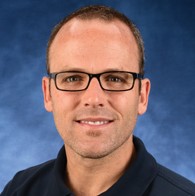Presenter Profile

Steven C. Rogers, MD, MS-CTR
Medical Director - Emergency Behavioral Health Services
Connecticut Children's
Research Scientist
Connecticut Children's Injury Prevention Center
Associate Professor
University of Connecticut School of Medicine
scrogers@connecticutchildrens.org
Steven C. Rogers, MD, MS is a Pediatric Emergency Medicine doctor and the Medical Director of Emergency Mental and Behavioral Health Services at Connecticut Children's. He is an Associate Professor at the University of Connecticut School of Medicine. He is also a Research Scientist at the Connecticut Children's Injury Prevention Center. He is the Co-PI for the Hartford site of Injury Free Coalition for Kids and a member of the national executive board. His current research, academic and advocacy efforts focus on improving care for children with mental/behavioral health emergencies and youth suicide prevention. He is developing new protocols and programs that will enhance clinicians’ as well as caregivers’ ability to identify behavioral-health disorders and connect them to appropriate resources. He is bringing together prevention experts from state/community programs, the university health science center, and the Injury Prevention Center to improve the identification and care of youth at-risk for suicide.
Presentations
Suicide Prevention
Steven C. Rogers, MD, MS-CTR
Kristen Volz, MS
How to successfully develop a Youth Suicide Prevention Program in your emergency department... including a demonstration of Question, Persuade, and Refer Gatekeeper Training
Steve Rogers, MD, MS-CTR
Kristen Volz, MS
QPR stands for Question, Persuade, and Refer – the 3 simple steps anyone can learn to help save a life from suicide. Just like CPR, QPR is an emergency response to someone in crisis and can save lives. QPR is the most widely taught Gatekeeper training in the world. A gatekeeper is someone in a position to recognize a crisis and the warning signs that someone may be contemplating suicide. Gatekeepers can be anyone, but include parents, friends, neighbors, teachers, ministers, doctors, nurses, office supervisors, squad leaders, foremen, police officers, advisors, caseworkers, firefighters, and many others who are strategically positioned to recognize and refer someone at risk of suicide.
The first 20 participants will be eligible to participate in QPR and receive a booklet that contains all the material covered in the class, as well as a certificate of completion at no cost.
1. Recognize the common causes of suicidal behavior
2. Recognize the warning signs of suicide
3. Identify local and national resources to help themselves or someone in crisis
4. Recognize opportunities to bring suicide prevention training to clinical and non-clinical team members within your institution
Navigating Mentor-Mentee Relationships in Injury Prevention: From Successes to Challenges
Sofia Chaudhary, MD
Brent Troy, MD
Kathy Monroe, MD, MSQI
Wendy Pomerantz, MD, MSCE
Maneesha Agarwal, MD
Altamish Daredia, MD
Charles Jennissen, MD
Steve Rogers, MD, MS-CTR
The mentor-mentee relationship is a vital connection for professional and personal growth and success. This relationship can be transformative for both the mentee and mentor and result in pivotal career defining moments. Yet there is no standardized curriculum for being a mentor during medical training and many of us find ourselves in this role early on in our careers. Additionally, finding a mentor that would support growth and discovery for your injury prevention interests may require making connections outside of your department or institution to find a good fit.
This workshop will include panelists that are in various stages of being a mentor (seasoned, mid career, early career) along with mentees to provide attendees with the breadth of experiences for mentor mentee relationships. How can we find that transformative mentor mentee relationship? This session will define key components needed for these relationships to thrive and panelists will share their best practices. Attendees will also learn pitfalls that can unravel mentor mentee relationships. We will discuss how to find a mentor that would support your injury prevention interests and share our mentorship discovery paths.
Attendees will then participate in break-out sessions with small groups to discuss best approach to challenging topics including: • What to do when the mentor mentee relationship isn’t working? • How to approach authorship discussions with your mentor or mentorship team? • How to navigate having a mentor from an outside institution?
At the conclusion of workshop groups will share what they have learned from the breakout session. We will conclude the session by discussing how to transition from being a mentee to mentor.
1. Define key components needed for a successful mentor-mentee relationship
2. Identify pitfalls that can lead to a breakdown in the relationship
3. Explore how to find a good fit for a mentor for your injury prevention interests
4. Discuss how to overcome roadblocks and navigate challenging topics within the mentor-mentee relationship
5. Understand how to transition from being the mentee to the mentor
